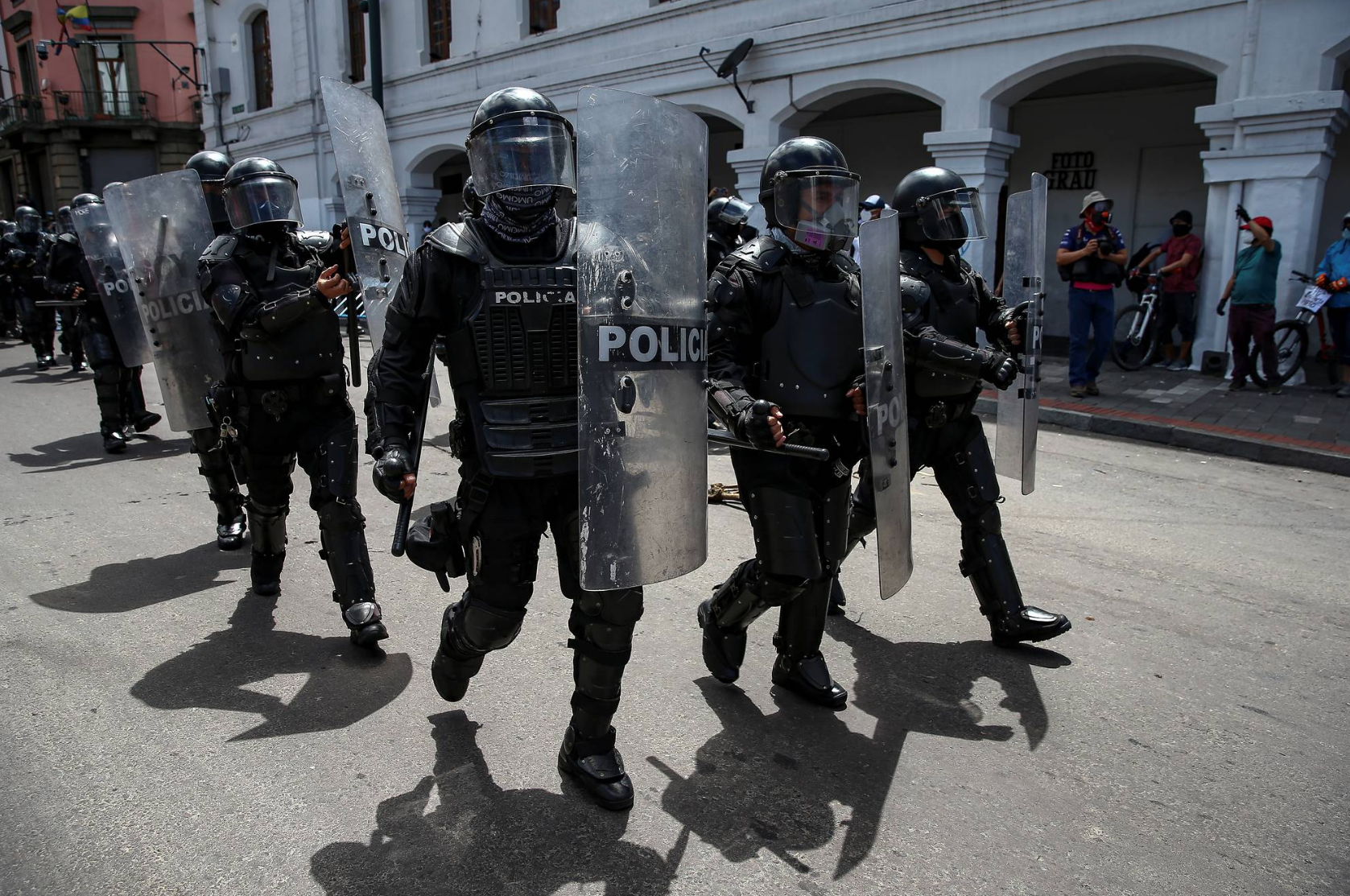On June 7, the National Assembly of Ecuador approved, with an absolute majority, the law for the legitimate use of force. The position of several analysts is that “it does not change anything” or even “improves the situation” in terms of the progressive use of force and respect for human rights, in relation to the current regulations. Beyond this debate, I consider that the real purpose of the law is not to change the norm but to send a message.
The message to the police and military is that the law protects them. This happens after they have insistently asked to be able to largely use force as they exhibited in a bloody way in October 2019, especially in the city of Quito. It is said that with this law, now their rights will be respected. Their hands will no longer be “tied” in the face of crime.
For the citizens, the message is that now they will effectively deal with insecurity. The current Ecuadorian government is working with a communication strategy that claims that the country’s current security problems are due to the alleged links between “Correism” and drug trafficking mafias. However, according to the Homicide Monitor of the Igarapé Institute, in the period 2008-2017, that is, during the government of Rafael Correa, the country registered historic advances in terms of security, positioning itself as one of the safest destinations in Latin America.
Contrary to this trend, in the last six years, the homicide rate doubled, adding up to almost 400 deaths in the country’s prisons. As a result, the perversity of the violence experienced by the country reached unimaginable levels, to the extent that the population is afraid to leave their homes. In this context, in which violent robberies have become widespread, the administration of Guillermo Lasso seeks to position the idea that now there will be a “hard hand” with “criminals”.
Analysts, against all evidence, argue that the current situation of insecurity is due to the policies implemented during the so-called government of the Citizen Revolution. From this narrative, the law symbolizes a “turning of the page” so that Ecuador can finally recover from the alleged evils of “Correism” that unleashed the insecurity experienced in the country.
In this context, the majority support for the law on the legitimate use of force by the legislative bloc of the Union for Hope (UNES) formed by the Citizen Revolution, ends up looking like a “mea culpa”. After the approval of the law, and in response to questions about their support for it, UNES spokespersons indicated that they do not want to “give excuses” to President Lasso for not dealing effectively with insecurity. However, what has happened is that they have not had the political capacity to effectively counteract the network that has been created against “Correism”.
Will this law have any effect on insecurity rates? According to data from institutions such as ECLAC, no. What could have an effect on violence would be the reduction of poverty indexes in which the population is immersed and the hopelessness in a great part of the Ecuadorian youth. Currently, we have a dismantled educational system, technical and technological education destroyed, young people entering universities in dribs and drabs, and a hungry population. These are the consequences of the neoliberal policies of Moreno and Lasso governments, added to a complex global context marked by pandemics, economic crisis, and war.
In addition, according to organizations such as the Forum of Latin American Security Professionals, countries that have applied an iron fist have failed to reduce crime. What will reduce insecurity and violence rates is to increase the public budget well invested in a system of social rehabilitation.
Contrary to a social and human rights approach, imperative in situations such as those experienced by Ecuador, I fear that this law will embolden the forces of “law and order” and will increase human rights violations against people defined as “criminals” or “narcos”, and even against all those who engage in social protest or oppose government policies.
Ecuador has already experienced harsh moments of violations and abuses by the police with cases such as the disappearance of the Restrepo brothers, who disappeared during the government of Leon Febres Cordero. Faced with the current levels of insecurity in the country, many think that human rights should not be for all humans, an aberrant position, but one that is increasingly perceived and that goes to the extreme of generating joy in some citizens for each new massacre in prisons.
In this context, it should be noted that President Lasso recently signed a cooperation agreement with Israel on security matters, and in the framework of the Summit of the Americas, he proposed to the President of the United States the implementation of a “Plan Ecuador” in the style of “Plan Colombia” that for two decades has contributed to the bloodshed of that country, under the pretext of fighting against drugs.
In Ecuador, human rights abuses are already being committed by the “forces of law and order”. What awaits us now with this unmistakable sign in which the “state order” will intensify?
Translated from Spanish by Janaína Ruviaro da Silva












